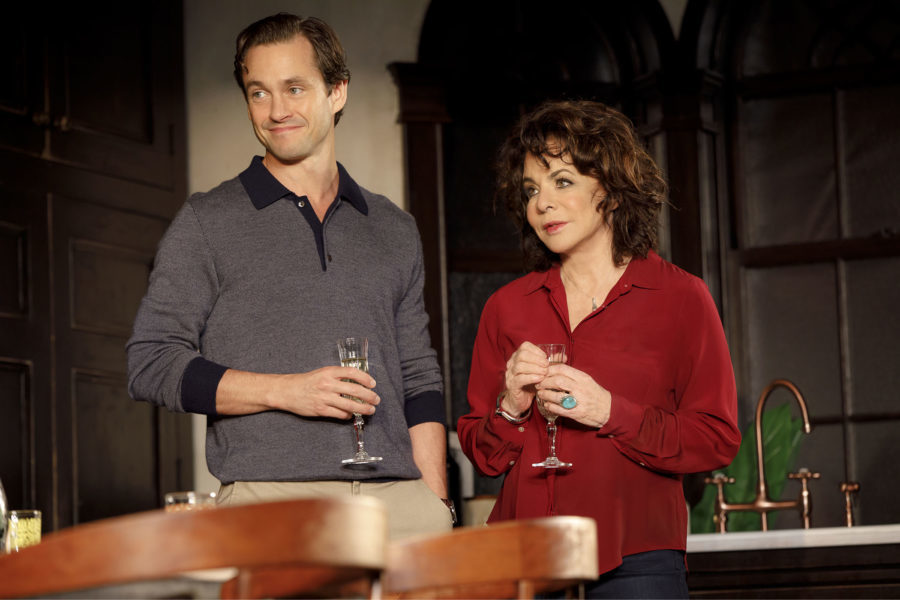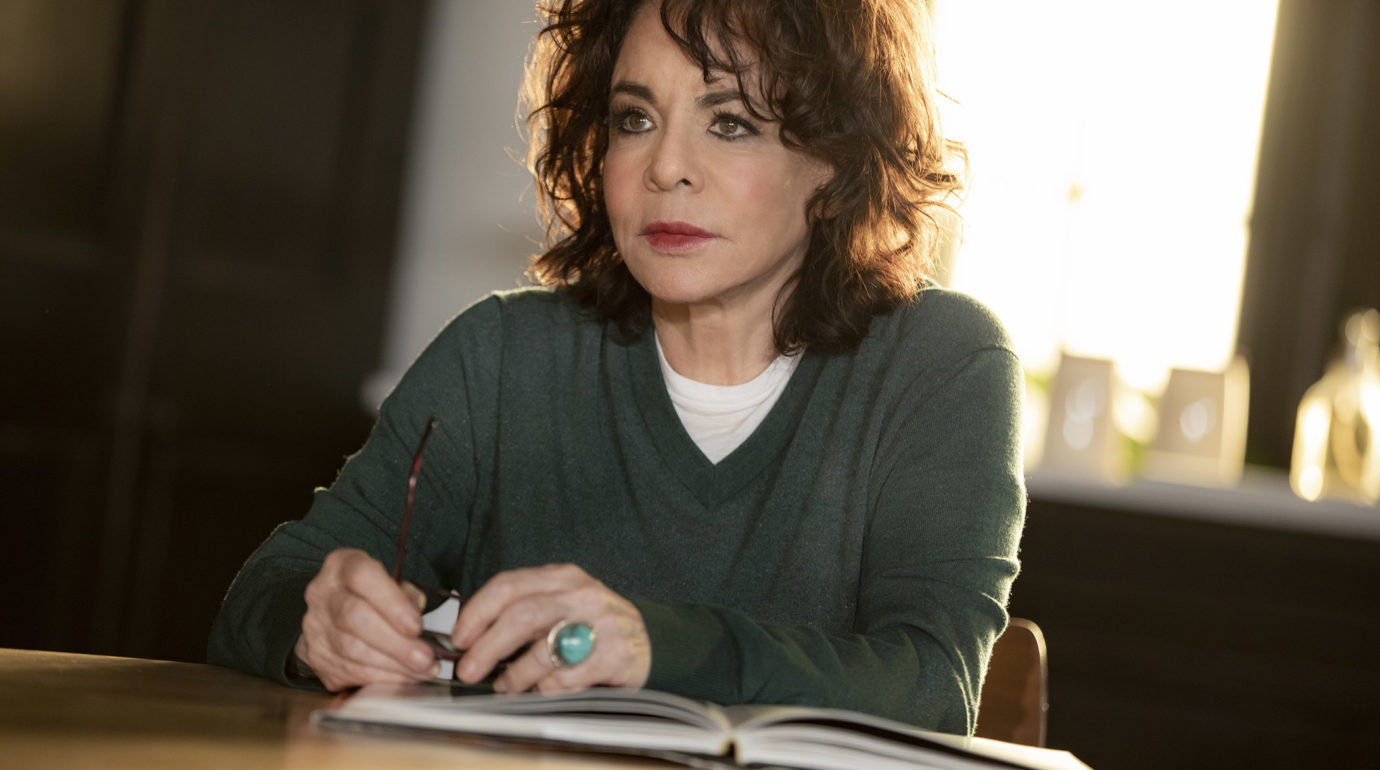Stockard Channing is no stranger to reprising a role. She did it with Six Degrees of Separation, for which she was nominated for both a Tony Award and an Oscar. This month, she returns to the role of Kristin Miller in Alexi Kaye Campbell’s Apologia Off Broadway at Roundabout Theatre Company (through Dec. 16). She originally starred in an entirely different production of the play last year in London.
Channing’s multi-decade career has come with its fair share of screen and stage accolades: She’s been nominated 13 times for a Primetime Emmy Award and 7 times for a Tony Award (she won a Tony in 1985 for her performance in A Day in the Death of Joe Egg, and she’s won Emmys for “The West Wing” and “The Matthew Shepard Story.” Her role as Rizzo in the movie of Grease cemented her in the popular imagination.
Channing spoke with American Theatre while in rehearsal for Apologia, which has an entirely new cast and creative team for its New York run. Hugh Dancy will play Channing’s sons, both of them, as they gather for Kristin’s birthday party and old resentments surface following the publication of Kristin’s memoir.
DIEP TRAN: What’s it like to reprise a role?
STOCKARD CHANNING: I think it’s fantastic; you refresh it. I’ve done it with Six Degrees of Separation, ’cause we went to London with a British cast and a new director. I find it fascinating. Certain things do adjust because the personalities are different. You just sort of hold back, a little racehorse at the gate, and everybody catches up.
Will it affect how you play the character?
To a degree, not the character but how she interacts with others might be slightly different. Her history is the same and her history with each of the characters is the same. But that’s sort of emerging now. Since Hugh plays both of my sons, there’s a whole hunk of the play that depends on those relationships.
In the London production, Joseph Millson also played both Paul and Simon. Why that casting choice?
It was a directorial decision and the playwright’s decision. There have been productions in other companies in other countries that Alexi had seen, and he was taken with the idea. It worked in London, it worked so well. When it came to curtain call, literally professional people in the business, said, “So what happened to the actor who played Peter or Simon? Why wouldn’t he take the curtain call?” [laughs] I said, no, there was one actor in the part! It’s certainly an interesting coup de théâtre. I’m looking forward to seeing how Hugh does it.

What drew you to this character?
She’s so articulate. It’s a memory play to a large degree. I think it’s fascinating, because family plays are always so fascinating, but in this particular one, there’s some secrets from the past and there’s memories that each of them remember differently. And I found it to be one of the most complex characters I’ve encountered in a long time.
She is a very independent woman with all that that entails, and the sacrifices she has made and how it’s perceived…. It is curious to play the part because onstage, you encounter certain prejudices. She doesn’t apologize for herself. I think she has a great deal of integrity that I admire.
Did you encounter any pushback when you played her in London?
Oh yeah! Absolutely. It’s fascinating, because there’s this old default position that people fall into. At one of the press conferences, she was called a matriarch; actually, she’s an anti-matriarch. In this world where people are complaining about helicopter mothers, she’s the total opposite. And they still complain about her! Mothers just can’t win, there you go.
All theatre is a Rorschach test, but this one I feel speaks to our time and our perceptions of women and what is a mother and what is the definition of a good mother, and all that business. But I don’t want to make it sound very heavy, because it’s very lively and funny; it has a tremendous amount of energy to it. It has a lot of color to it.
One of the points of contention that your character, Kristin, has with her sons is about citizenship and our duties to each other and to society.
She is of her age and her beliefs about responsibility to society—she feels very, very strongly on that subject. It’s so funny, John McCain just dying and that wonderful letter that he wrote—there is a whole generation of people that asked: What can you do for your country? And what can you do, in her case, for humanity? She’s a humanist; I think those are her principles.
I remember in college there was literally a course called Freedom and Responsibility in the Modern World, and that is the balance. We’re self-determined but we have a responsibility to each other and to the planet and all of that. And we live in this age of immense consumerism and hysteria and self-aggrandizement. It’s very hard to find out what your obligations are and where real contributions can be made, that’s the other thing. Because there’s so much cynicism around.
So what do you do?
I’m in rehearsal!
I mean, what can the artist contribute during this time?
It’s interesting. I think the best thing you can do in a play is you stimulate conversation. Sheer entertainment has its place in the world, but what I found interesting in doing the piece in London, it did stimulate so much discussion. I think anytime we can have a civilized, open, interested discussion, it’s a good habit, you get your brain into it. I think that’s what I think theatre can be all about, that kind of stimulus.
In terms of the general political world we’re living in America, this kind of polarization is frankly terrifying and very sad. But maybe with time that can pass. In the meantime people should have compassion for each other and talk to each other and feel that, and not isolate themselves from their fellow man.


